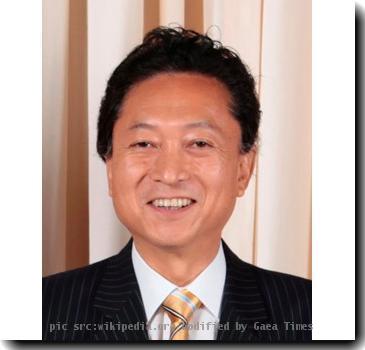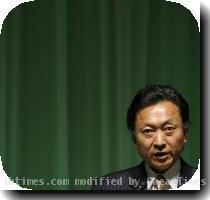Chinese premier avoids backing UN sanctions on NKorea over sinking of SKorean warship
By Young-joon Ahn, APSunday, May 30, 2010
China premier avoids backing sanctions for NKorea
SEOGWIPO, South Korea — China’s premier expressed no support for proposed U.N. sanctions against ally North Korea over its alleged sinking of a South Korean warship, declining Sunday to join other key nations in blaming Pyongyang.
Premier Wen Jiabao said Sunday that tensions between the two Koreas need to be urgently defused. He spoke at the end of a weekend summit in South Korea where he was closely watched for signs that Beijing would get tougher on the North, which is accused of sinking the naval ship Cheonan with a torpedo two months ago, killing 46 sailors.
China’s backing is key to any effort to punish North Korea with U.N. sanctions because Beijing wields veto power at the Security Council as a permanent member.
North Korea has repeatedly denied attacking the ship, and on Sunday tens of thousands of people packed the main square in Pyongyang, the nation’s capital, for a rally condemning South Korea and the U.S. The isolated North often organizes such events during times of tense relations with foreign countries.
Clapping and pumping their fists in the air, the protesters shouted anti-South Korean slogans, held signs and carried a huge portrait of North Korean leader Kim Jong Il, according to video footage from APTN in North Korea.
“Because of the South Korean war-loving, mad puppets and American invaders, the North and South relationship is being driven to a catastrophe,” Choi Yong Rim, secretary of the North Korean Workers Party in Pyongyang, told the crowd.
Wen joined the leaders of South Korea and Japan at the two-day summit, which was to focus on economic issues but was overshadowed by the sinking of the Cheonan, one of the South’s worst military losses since the Korean War in the 1950s.
At a closing news conference, Wen gave no clear indication that Beijing was ready to endorse South Korea’s plans to bring North Korea before the U.N. Security Council for sanctions or condemnation.
Nevertheless, Wen used China’s strongest language yet to describe the grave situation between communist ally North Korea and South Korea, a vital trading partner.
“The urgent task for the moment is to properly handle the serious impact caused by the Cheonan incident, gradually defuse tensions over it and avoid possible conflicts,” Wen said.
“China will continue to work with every country through aggressive negotiations and cooperation to fulfill our mission of maintaining peace and stability in the region,” he said.
Yang Moo-jin, a professor at the University of North Korean Studies in Seoul, said he doubted the Security Council would take up the Cheonan case.
“Wen Jiabao’s speech today gave no practical measures in dealing with the Cheonan incident,” Yang said. “He said nothing about how specifically China will get involved in regard to the U.N. Security Council.”
South Korean President Lee Myung-bak said the three leaders had agreed to continue discussing the ship disaster.
“I expect Japan and China, as very responsible members of the international community, to wisely cooperate in the handling of this matter,” Lee said.
Japanese Prime Minister Yukio Hatoyama added that the three nations have “a common view that (the ship sinking) is a serious matter for peace and stability in Northeast Asia.”
Last week, South Korea laid out a series of punitive measures, including slashing trade, resuming anti-North Korean propaganda broadcasts across the border and launching large-scale naval exercises off the western coast.
The North warned the South’s moves would push the peninsula closer to war.
“I know there are concerns that regional security is unstable due to the Cheonan incident,” President Lee told Wen and Hatoyama during a summit Sunday, according to presidential adviser Lee Dong-kwan. “We are not afraid of war, but we don’t want it.”
The two Koreas are still technically at war because their 1950-53 Korean War ended with an armistice, not a peace treaty. The U.S. stations 28,500 troops in South Korea in a legacy of the war.
Associated Press writers Hyung-jin Kim and Claire Lee in Seoul contributed to this report.
Tags: Accidents, Asia, Beijing, China, East Asia, Foreign Policy, Greater China, Japan, Lee Myung-bak, North Korea, Pyongyang, Seogwipo, Seoul, South Korea, Summits, Transportation, Yukio Hatoyama

